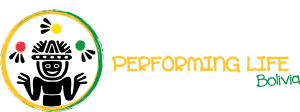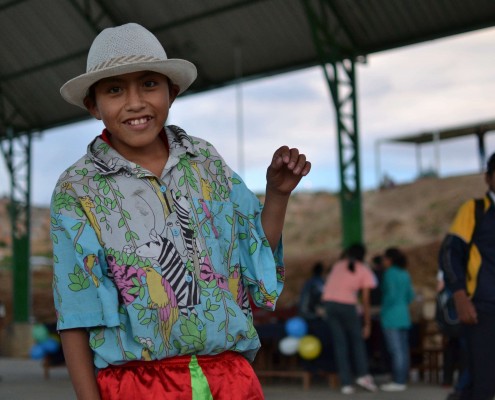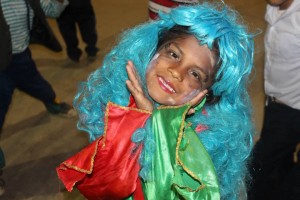The children
Performing Life works with two related groups of youth here in Cochabamba. The first consists of children who work in the streets to support themselves and/or their families and are known as “working youth”. The majority of the youth working in factories or other businesses often face exploitation in their working environments. For this reason many youth work independently, selling wares, shining shoes, and washing cars. The second group – “street youth” – includes kids who are both working and living on the streets. Even more than working youth, street youth face immense challenges and dangers in their daily lives. It is common to walk the streets of Cochabamba and see many children and adolescents who have left their homes or were born on the streets and have fallen into patterns of drug abuse and delinquency. The most common drug, an inhalant called clefa, is a type of glue used to repair shoes. It is taken in order to alleviate the feelings of hunger, cold, and depression. These youths live in large groups throughout the city, sleeping under bridges or in the parks. While some work, many street youth make support themselves through begging and theft.
In Cochabamba both working and street youth frequently come from the most marginalized communities in Bolivian society – communities that lack access to basic services such as electricity, water, and sanitation; health care, including options for family planning; opportunities for quality education; and real prospects for economic mobility. These communities, and the families that constitute them, possess high rates of spousal and child abuse, alcohol and drug dependence, and other challenges that make real and last positive changes extremely difficult. This is why Performing Life believes that investing in children’s futures – and breaking the cycle of poverty that contributes to all the aforementioned challenges – is a generational investment.
Meet the children
Vanesa Ortega Marquina, 8 years old.
Vanesa has been a part of the program in Montenegro for a half year. She comes every day with her twin brother José. She likes to perform with aerial silk and has also learned acrobatics. Seven people currently live in her house: her mother, father and four other siblings. Coming to Performing Life gives her and her brother a space to play, spend time with other children, and eat a good meal. In her own words, “I love Adalid and playing games. Performing Life is fun to come to after school.”
María Fernanda Porco Mamani is 7, and in 2nd grade in the “La Concordia”, a State run public school. She attends the Quillacollo Morning Classes run by Tania Coca Ardaya. She lives in Cochabamba with her mother Basilia Mamani who works as the kitchen/cafeteria manager in the Quillacollo office.
Gabriela Martinez, 14 years old has been a part of Performing Life for past 3 years. She first joined because her father told her about the organization. Since then she has learned the Chinese yo-yo, juggling and acrobatics. Her favorite is the poi chains. Gabriela has also been a part of the bracelet program. With the funds her family has gained,they plan on building a bigger house for her and her three siblings. Right now her family home only has two rooms for the six members of her family, but in the new house they hope on having a room for each child. In her own words, “The best part of Performing Life has been the friends that I made at themfoundation. I like coming everyday to spend time with my friends in a safe place after school.”





